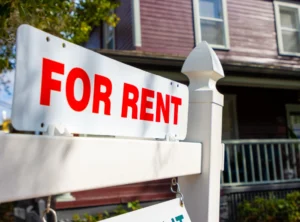New Zoning Law Would Hurt College-Town Rentals
by Janet Portman
 Q: We own a four-bedroom, single-family home in a university town, which we rent to students. Our neighbors have been complaining about noise and traffic. There’s a movement now afoot to change the zoning laws to provide that a “family” be defined as prohibiting more than two unrelated occupants from living together in a single-family neighborhood. This will make it very hard for us to keep the property (we’ll have to drop the rent if we can’t rent to more than two unrelated students). Any suggestions? –Sharon and Matt D.
Q: We own a four-bedroom, single-family home in a university town, which we rent to students. Our neighbors have been complaining about noise and traffic. There’s a movement now afoot to change the zoning laws to provide that a “family” be defined as prohibiting more than two unrelated occupants from living together in a single-family neighborhood. This will make it very hard for us to keep the property (we’ll have to drop the rent if we can’t rent to more than two unrelated students). Any suggestions? –Sharon and Matt D.
A: When large universities rely substantially on the local town to house their students, it’s common to hear neighbors complain of noise, traffic and diminution of property values. Zoning ordinances like the one you describe are a likely response, and none other than the U.S. Supreme Court has blessed them.
Back in 1974, a similar ordinance in the Village of Belle Terre, N.Y., got the OK from Justice Douglas, who wrote, “A quiet place where yards are wide, people few, and motor vehicles restricted are legitimate guidelines in a land-use project addressed to family needs. ¦ [Government may] lay out zones where family values, youth values, and the blessings of quiet seclusion and clean air make the area a sanctuary for people.”
You may be wondering how all these values would be met if you were to rent your house to a traditional family of eight — surely there would be noise, litter and parking congestion from them, too. This is exactly what some state courts have seized upon when ruling on ordinances like Belle Terre’s. They’ve reasoned that because the classification scheme doesn’t advance the stated goals, the law can’t be allowed to stand. Whether your neighbors’ hoped-for zoning restriction would pass state court muster will depend on the approach taken by your state’s high court.
Before gearing up for a legal fight, step back and think about whether there are more practical ways to address this problem. Some university towns have taken creative steps, such as initiating rental registration programs that obligate landlords to give tenants informational material on their responsibilities as tenants, require landlords to terminate the tenancies of tenants who repeatedly violate the law, and revoke a property’s permit when it has racked up repeat violations. Allocating a portion of registration fees to the hire of additional law enforcement who can respond to complaints and investigations is also a good idea. Finally, don’t overlook the university itself. Pressure from the community may encourage more on-campus housing, which will ease the impact students have on residential neighborhoods.
Janet Portman is an attorney and managing editor at Nolo. She specializes in landlord/tenant law and is co-author of “Every Landlord’s Legal Guide” and “Every Tenant’s Legal Guide.” She can be reached at [email protected].
What’s your opinion? Send your Letter to the Editor to [email protected].
Copyright 2008 Janet Portman
American Apartment Owners Association offers discounts on products and services related to your commercial housing investment including REAL ESTATE FORMS, tenant debt collection, tenant background checks, insurance and financing. Find out more at www.joinaaoa.org.
To subscribe to our blog, click here.













 Accessibility
Accessibility